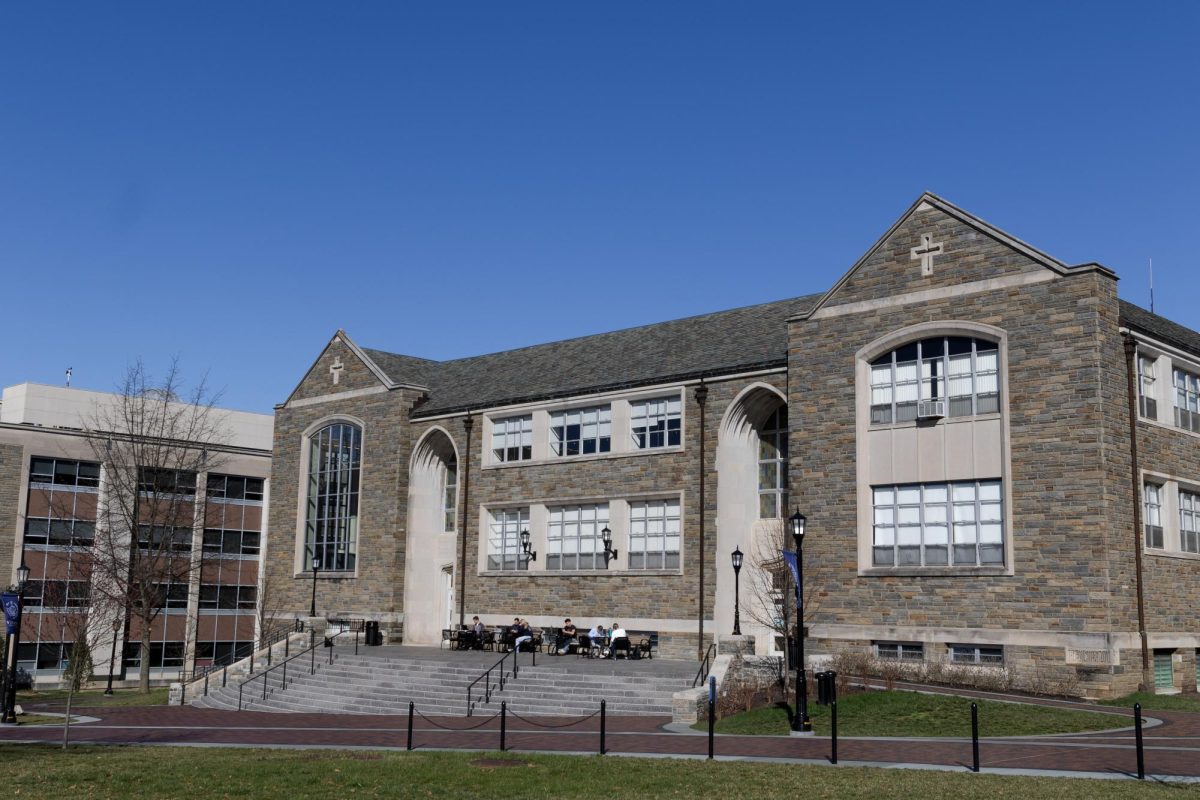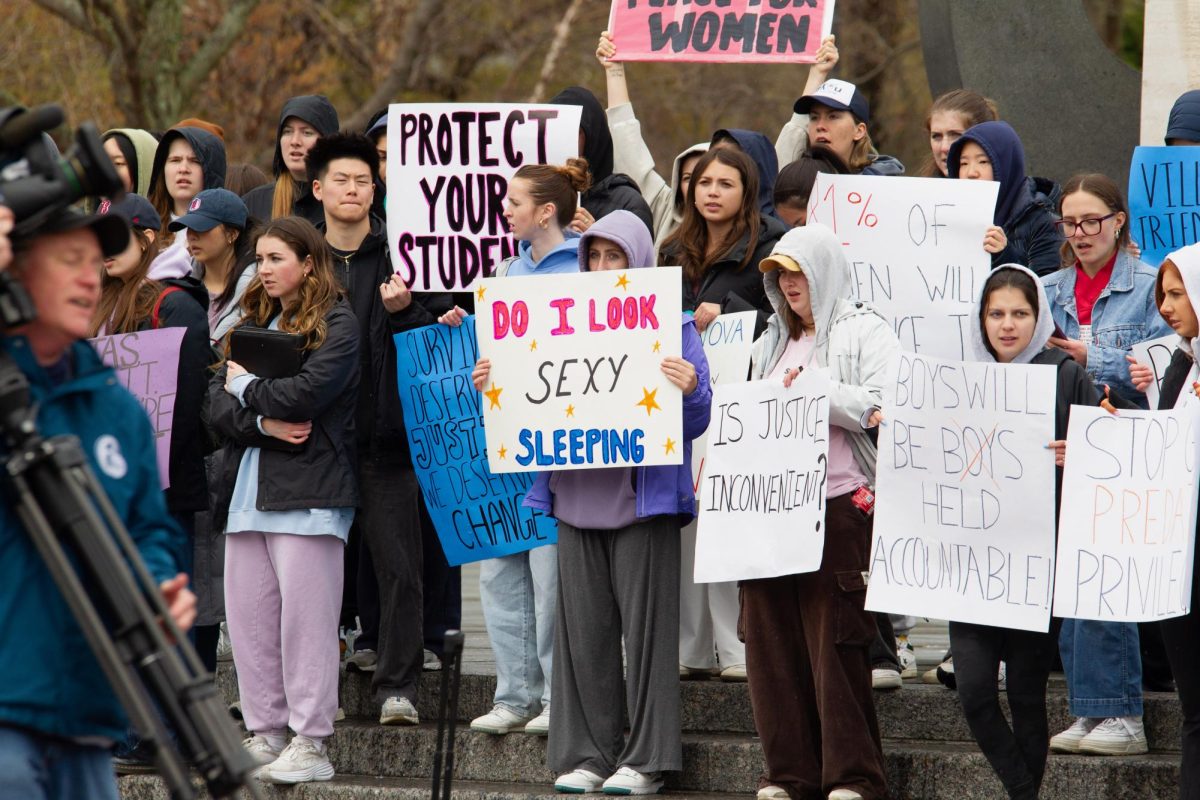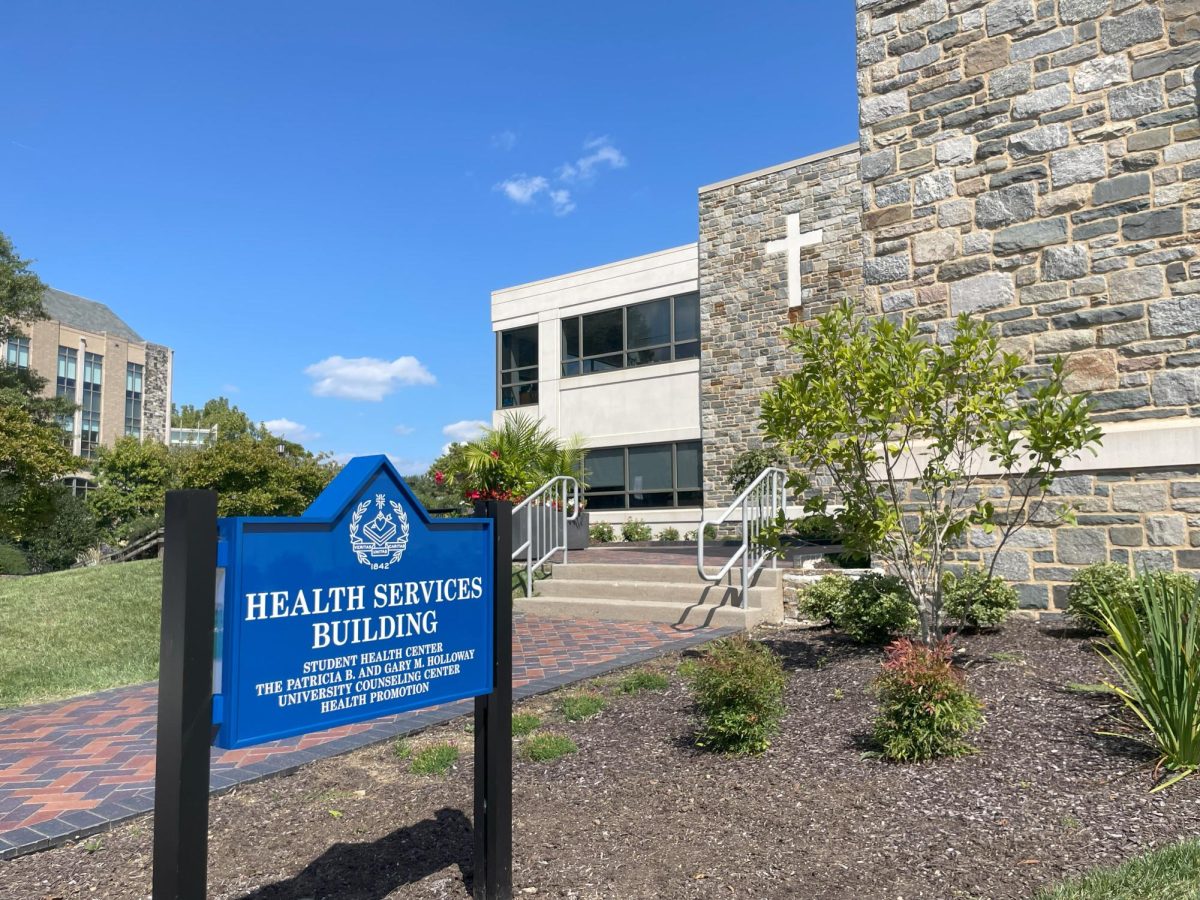On Tuesday, March 11, the Center for Irish Studies welcomed Emma DeSouza, an award-winning Irish writer and campaigner, who gave a speech titled, “Change From the Ground Up: The Role of Women, Youth, and Community-Based Movements in Effecting Societal Change in Northern Ireland.”
In addition to her journalism experience, DeSouza serves as a peace activist and political commentator with a focus on grassroots change in Northern Ireland. She is also the founder and co-facilitator of deliberative democracy platform, “The Civic Initiative, Director of Northern Ireland Emerging Leaders Program at the National Committee on American Foreign Policy” in New York, and is a transatlantic advisor on peace processes. DeSouza also played a role in changing UK law in a historic case relating to the 1998 Good Friday Agreement.
The event began with a welcome and introduction from Irish studies and political science professor, Cera Murtagh, Ph.D.
“[DeSouza] has a distinct perspective on these issues and a very valuable one at the time of Northern Ireland’s transition,” Murtagh said.
DeSouza started her talk by highlighting the power of community-based agreements in the history of peace treaties in Northern Ireland. She specifically focused on how women in Northern Ireland played a monumental role in bringing forth change, specifically relating to the Northern Ireland Women’s Coalition actions.
“When women are involved in peace processes, they are stronger,” DeSouza said.
She highlighted how there is imperative data to suggest that women have the ability to bring about peace in the context of politics and greater society.
“When women are included in peace talks, there is a 35% increase that there will be 15 years of peace or more,” DeSouza said.
DeSouza further emphasized the importance of education and female participation in politics, especially for young individuals living in Northern Ireland. She shared how young people have the ability to shape change that can catch the attention of and put pressure on the government system.
“Historically, meaningful change has been sparked outside of government buildings,” DeSouza said.
The stories of Northern Ireland teenagers Matthew Taylor and Lauren Bond were detailed in relation to impactful youth change and political campaigning. Taylor is an advocate who promotes mental health within the youth population. Bond has campaigned for the Northern Ireland education system to inform students about the Troubles.
“I am hopeful,” DeSouza said. “I know first-hand the impact an individual can have. I also know how difficult it can be to see the impact you can have.”
The speaker concluded her speech by drawing the audience’s attention to her hopes for the future of the Northern Ireland government system. She introduced the ideas of positive and negative peace. She defined positive peace as a country having political stability and an increase of human capital. DeSouza then described how Northern Ireland is experiencing negative peace currently. Negative peace is the lack of violence in a country, without the promotion of the factors described within positive peace.
“Is it good enough to have an absence of violence or should we be aspiring for something more?” DeSouza said.
DeSouza left the audience with a lasting message that there is a great need for change in Northern Ireland, despite the lasting peace impacts of the 1998 Good Friday Agreement.
“Emma’s first person point of view was super eye-opening,” junior Maggie Parham said. “I feel like a lot of the stuff I’ve talked about in classes have been a bit more historical, so learning about the post-Good Friday Agreement generation was really exciting.”
DeSouza’s presentation allowed both students and faculty members alike to gain a new perspective on Northern Ireland and the changes that both females and the youth population have been striving for since 1998.







